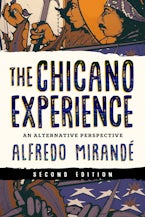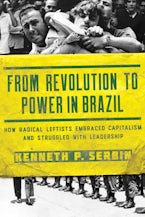“Pastoral Quechua, with its subtle and complex analysis, is the long-awaited book that successfully charts the correlation between conquest and religious translation in Peru.” —Latin American Studies
“Durston’s achievement, which is a major contribution, is to show us the detailed and complex inner workings of the Spanish theory of domination through Quechua translation. The book is highly recommended.” —Church History
“Durston’s book explains how pastoral Quechua developed and why it never became a universal written standard for nonpastoral uses. Some of the analyses are little masterpieces of research. . . . His analysis of Ore’s hymns and its intertexts is a marvel. His study of the ways in which Christian writers substituted Andean tropes and images for European ones is another masterpiece of analysis.” —Hispanic American Historical Review
“ . . . Durston has written a carefully documented history of the many ways in which Spaniards sought to study, learn, and then employ Quechua to convert the newest members of the Church’s flock. . . . Durston’s excellent study will be useful to scholars in many fields: linguistics, anthropology, theology, Quechua literature, semantics, history, sociology, and Hispanic studies.” —Renaissance Quarterly
“The volume is worth the effort of even the non-specialist. Few have the skills to reach this level of analysis. Durston has made a major contribution to Andean studies with this well-written and carefully researched analysis.” —American Historical Review
“Pastoral Quechua is a remarkable new addition to the interdisciplinary studies of colonial Peru. Combining the fields of history and linguistics, Alan Durston’s study develops a holistic understanding of Christian translation into Quechua, the principal language family of the former Inca Empire.… His many discussions about the institutional struggles for colonial power through the use of the written language open new avenues of analysis for all those interested in colonial history and historical and anthropological linguistics, and for literary critics of this period.” —Colonial Latin American Historical Review
“. . . an indispensable and original tool for those in the field of Spanish and Portuguese linguistics, colonial Latin American history, and the history of the Catholic Church. . . . Although this is a complex and scholarly work, Durston's close examination of the unusual subject matter and his transparent writing make the work very interesting, even for the non-specialist.” —Catholic Library World
“A study of how Catholic priests and missionaries attempted to ‘incarnate’ Christianity in Quechua by codifying a single written standard grounded in a version of the language spoken in the former Inca capital of Cuzco.” —The Chronicle of High Education
“In this careful study of Quechua pastoral texts Durston's research is fundamental, opening up news ways of understanding how decisions about translation affected the growth and development of Christianity in South America. Pastoral Quechua is a 'must-read' for all scholars of the colonial Andes.” —Journal of Ecclesiastical History
“For specialists in Andean languages, Pastoral Quechua is obligatory reading. For the nonspecialist, this is a fresh and enlightening way of looking at history. In most colonial church histories language appears as a subtopic under evangelization. In this case, language itself, and the background battles over language, become the lens through which the reader views and relives colonial Andean history.” —The Catholic Historical Review











